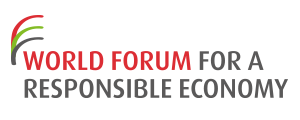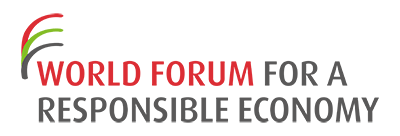The FedEx Corp. provides customers and businesses worldwide with transportation, e-commerce and business services. FedEx’s most powerful tool is their global network which they use not only for business, but to help people in many non-profit ways such as taking swift action when disasters strike by delivering crucial resources such as food, water, shelter and even life saving medicines. Yet, their greatest direct impact on the world could possibly be from their striving efforts to reduce carbon emissions as well as their dependence on fossil fuels.
FedEx delivers a package to reduce carbon emissions
4. Environment
Energy / Greenhouse Gases (GHG)



Context
Objectives
- A plan to reduce carbon emissions by 20% by 2020 by purchasing hybrid vehicles, using fuel-efficient aircrafts and renewable energy facilities.
APPROACH
FedEx continues to make significant progress toward achieving its fuel efficiency goals by investing in more fuel-efficient aircraft, vehicles and facilities including:
- Commercial hybrid electric trucks: Operating the largest fleet in North America and the transportation industry with more than 170 vehicles. FedEx E700 hybrid electric trucks, the most common hybrid in the FedEx fleet, improve fuel economy by 42%, reduce greenhouse gas emissions by approximately 25% and cut particulate pollution by 96% compared with conventional vehicles. The fleet recently celebrated a major milestone: more than two million miles of revenue service which also justifies testing and purchasing hybrid electric technology.
- Upgrading its aircraft fleet by replacing narrow-body Boeing 727 aircraft with Boeing 757 planes that lessen the environmental impact, reducing fuel consumption up to 36 percent while providing 20 percent more payload capacity. The company will also acquire Boeing 777 aircraft that provide greater payload capacity and use 18 percent less fuel on average than the MD-11 aircraft currently in operation. These aircraft replacements will also significantly reduce carbon emissions.
- Three solar-powered facilities in California—in Oakland, Whittier and Fontana—eliminating almost three million pounds of carbon dioxide emissions each year. FedEx Express recently broke ground for its largest solar-powered hub to date. The Cologne, Germany hub installation, which is expected to be completed in 2010, will include a 1.4-megawatt (MW) solar power system and is expected to generate approximately 1.3 gigawatt-hours of electricity per year, equivalent to the annual consumption of 370 households.
CONTRIBUTION TO COMPANY PERFORMANCE
- Long term energy cost savings
- An environmentally conscious image
Benefits
- Long term approach in reducing its carbon footprint
- Setting an environmental example for the rest of the industry to follow
- A close dialogue with stakeholders which reinforces customer /shareowner relations.
- Country
- United States
















